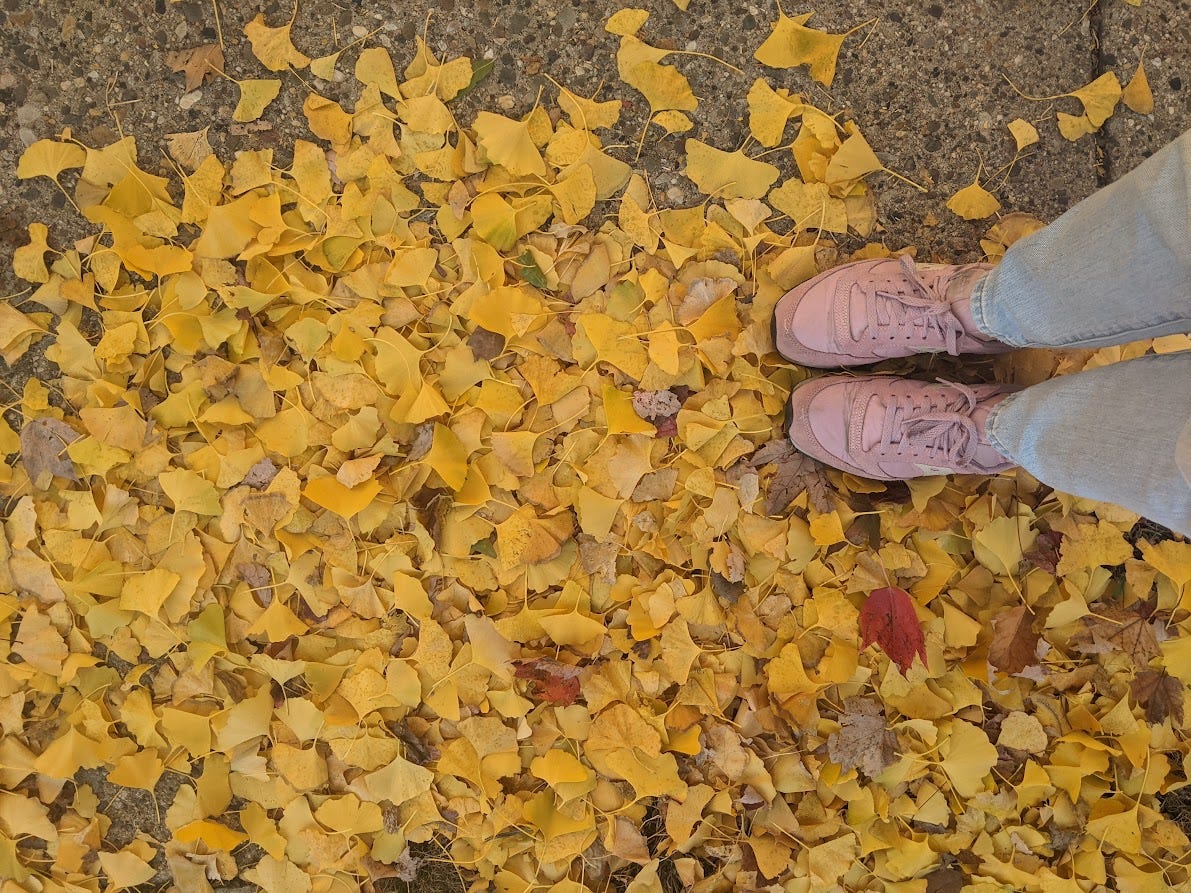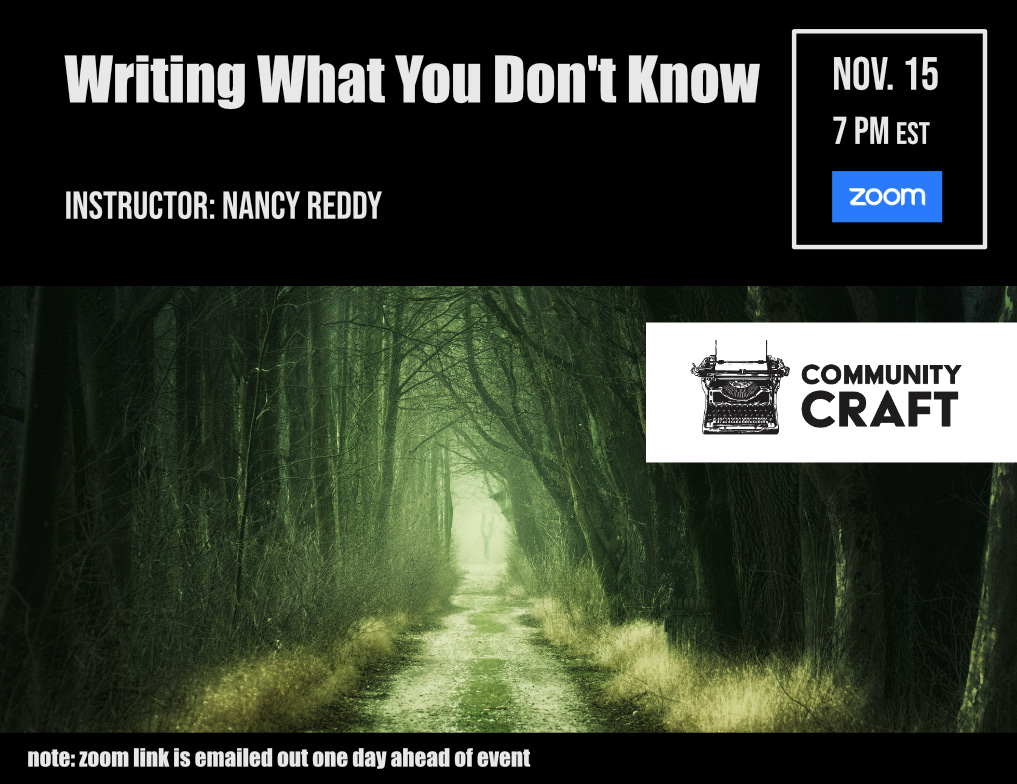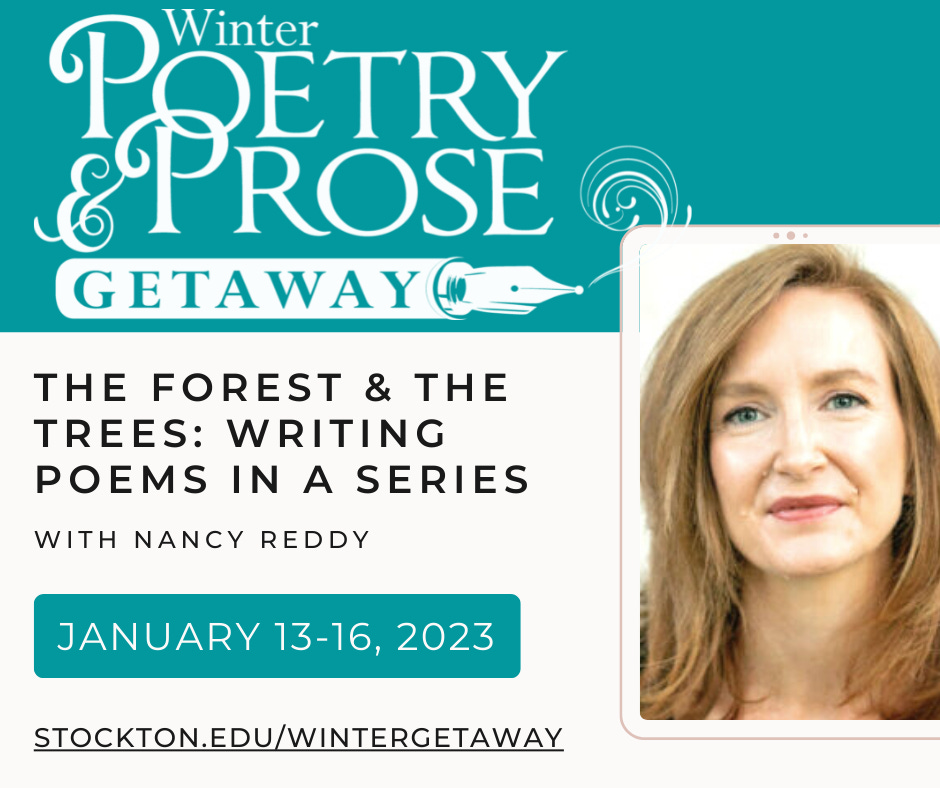how to write when your brain is a fried egg
+ two upcoming chances to write together
Welcome to Write More! This is the your mid-month pop-in, which comes with ideas, encouragement, and writing prompts to keep you going. I also send out a monthly intentions email on the last Sunday before a new month starts that aims to help you think through your goals and intentions for your writing practice in the coming month and to reflect on your progress in the previous month.
If you’d like to join us, subscribe here!
Three Pages of Garbage Update
Hi there! Have you been writing your three pages of garbage? How is it going?
I wrote last week about my attempt at doing Morning Pages every weekday in November, and I’m happy to report that I’m still poking away at it. I thought I’d share two things that are helping. (And I’d love it if you would chime in in the comments with your notes and good ideas, too!)
Using a tiny notebook! As a reader pointed out in the comments on that last post, “it’s the habit, not the quantity” (thank you, Barb!), and three pages in my little notebook feels so much more doable than the full-sized college ruled notebook I usually use for drafting. (And I find this particular notebook delightful, and appropriate for the challenge.)
Using my Morning Pages to plan and list and figure out my priorities, rather than trying to do real writing. I think I’d always assumed that Morning Pages were meant to be full of Deep Thoughts or Important Feelings, and while I have lots of those (see: poet), I can’t really conjure three pages of them all at once first thing in the morning. So I’ve been using that time instead to just kind of clear the decks—brainstorming and figuring out what I need to work on. It’s been a kind of pleasant warm-up for the day.
How are your Morning Pages going? Anything else that’s helping you in your writing practice right now?
quick tips for writing when you’re worn out
I was going to send this newsletter on Tuesday, then I didn’t get to it, and I was also going to send it Wednesday but instead spent a good chunk of the day hitting refresh to check election returns. (Turns out that doesn’t actually make the results show up faster!) By yesterday afternoon, my brain felt like a little fried egg, crispy around the edges but gooey in the middle. Anyone else in a similar spot?
I wanted to share a couple quick ideas for writing in times like this—when you might be able to scrape together a minute or two, but you’re not at your sharpest.
Just open the document. Sometimes this is the biggest hurdle—literally, just getting started. If you can, make yourself open the document as soon as you sit down. I know that if I let myself have “just a minute” to check my email, take a quick gander at the dumpster fire burning over on twitter etc . . . more than a minute will have passed, and I will have squandered some of my precious limited brain power. Once you’re in the document, you can re-read, tinker around the edges, etc—even if you don’t have the wherewithal to make huge progress, you’ll have gotten your brain back in the project.
Set a timer. I have a tomato clock extension on my browser, and you can also just use the timer on your computer or your phone. A pomodoro is 25 minutes, but if you only have 5 minutes, write for 5. I just re-read a wonderful essay, “Say Yes to Yourself” by Camille Dungy, in which she talks about setting an alarm and writing for just 1 minute at a time. You can write for 1 minute, and if you write for enough 1 minute chunks, you’ll be able to work your way back in.
Change medium. I know I’ve talked about this before, but it’s the biggest tip that helps me when I’m really feeling stuck. If I’m struggling in a word doc, switching to longhand in a notebook can make a difference. The computer often feels like serious Writing, whereas in my notebook, I’m just sketching out little ideas, and that can be a bridge back into the work. You can try writing on index cards or post-it notes, a whiteboard or big piece of paper, or talking aloud into your voice recorder. It all counts as writing.
Use your margins. In despair before sending a draft to a writing group or a friend, I’ve often started adding a comment in a word doc, writing something like “what I’m trying to say here is . . .” or “this part is meant to show that . . .” and before I know it, I’ve said what I needed to say, and I can cut and paste that comment into the text itself. There’s some sort of magic in how casual and conversational the margins are. You could do the same thing in a notebook or a printed draft.
let’s write together
Writing What You Don’t Know (a Community Craft workshop), Tuesday, November 15, 7-8PM eastern
In this online, open-genre workshop, we’ll explore a bunch of techniques for uncovering lost memories and writing into gaps in your knowledge or imagination. Most of the time will be spent putting those techniques into practice, so you’ll end the hour with lots of new writing and lots of strategies for your writing going forward. (Do you know the Community Craft workshops? They’ve hosted really amazing people—Gwen Kirby and Audrey Hirsch recently—and they’re such fun workshops.) And the Community Craft workshops are just a suggested donation of $5, so it’s a total bargain.
If you’d like to join us, sign up at this link, and you'll get an email with the zoom link shortly before the workshop.
Murphy Writing Winter Poetry & Prose Getaway, January 13-16
If you’re looking for a writing conference this winter, I’d love to recommend the Murphy Writing Winter Poetry & Prose Getaway, which will be January 13-16 at the Seaview Hotel near Atlantic City. Here’s what I think is special about the Getaway: it focuses on generating new work—you’ll write a new poem or more each day—and it brings together people from all walks of life. You’ll find new writers alongside people who’ve published multiple books, retirees alongside college students and MFA candidates.
I’m teaching a workshop, The Forest & The Trees: Writing Poems in a Series, and you can check out the whole list of poetry and prose workshops online.
Early registration discounts and scholarships are available; the Toni Brown Memorial Scholarship is for writers ages 31+ and the Robert Hayden Scholarship is for writers ages 18-30, with at least two Robert Hayden scholarships designated for young writers of color. The scholarship application deadline is November 15. You can read more about the Getaway and the workshops being offered here.
Write More, Be Less Careful is a newsletter about why writing is hard & how to do it anyway. Have a tip or writing practice you’d like to share? A challenge you’d like help with? Reply to this email, comment below, or find me on twitter (@nancy_reddy) and instagram (@nancy.o.reddy).
If you’ve enjoyed this newsletter, I’d love it if you would share it or send it to a friend.





